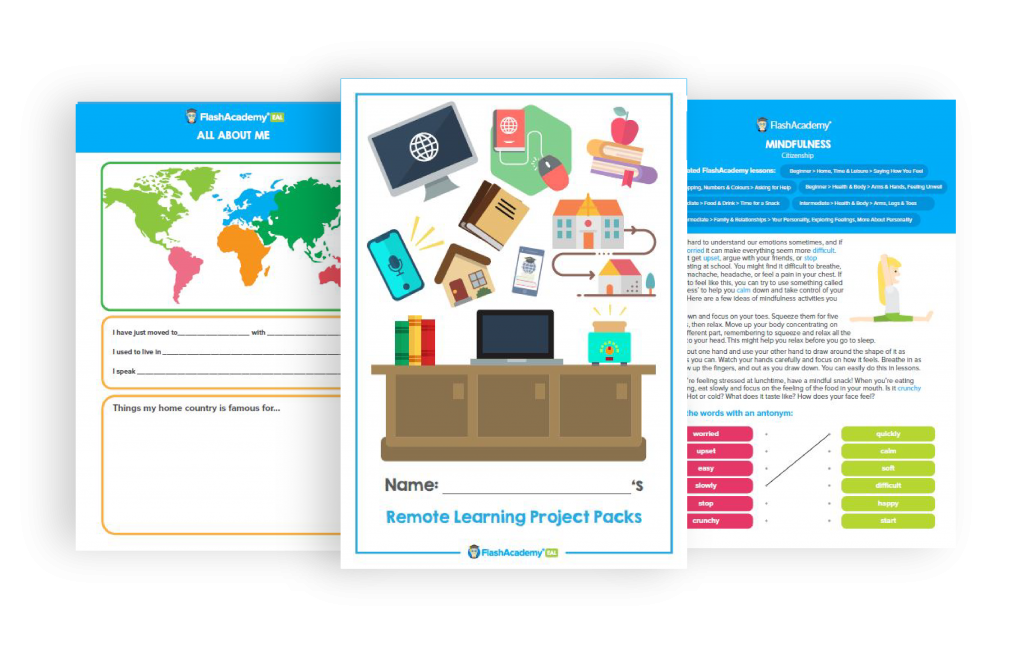

With lockdown reintroduced across the country, parents are likely to be stressed and overwhelmed that they need to be homeschooling EAL development. Whilst there is a wealth of free resources out there to support families and continued learning from home, schools in disadvantaged areas are struggling to provide remote learning due to the digital divide, falling on the parents to keep children occupied with activities.
Schools are working hard to provide as much remote learning as possible, but the challenge for pupils with EAL is that they often need more information than their peers, or that their parents might not be able to fully support them with remote learning due to mainstream provision. Homeschooling EAL is the only option for some families, especially if they struggle with the English language themselves and want to develop their child’s home language skills instead. So, how can schools support both remote learning and homeschooling EAL learners?

What’s the difference?
Homeschooling is a choice; it is something that is considered, takes a lot of planning, and a form of education where the parent or caregiver is actively teaching their child. They are the primary educator, catering the curriculum towards their child’s learning style and ability level.
Remote learning is where the child is not physically present at school but is being taught through communication with their teacher/teaching assistant/support group. It is a temporary online space where they are connected to teachers who remain as their primary educator, overseeing classes, keeping track of their work, and ensuring tasks/assignments are completed.
Homeschooling & Parent Support
As educators, we know that anything which activates a child’s thinking skills is very valuable learning, and even more so for English language learners. From practising English at home through academic work to cooking, watching TV & playing lego, these activities are perfectly ok for homeschooling EAL! What’s more vital right now is minimising stress and looking after our mental health. In these exceptional circumstances, the parent doesn’t have to become the teacher. They should do what they can, giving their child what they need best – love and support.

To help with the main areas of language development, suggest that they read books together in their home language or listen to audiobooks. For more autonomous learning, encourage them to free write by keeping a diary, drawing a comic, or writing their to-do list for the day! Providing a structure for the day, and not a strict timetable, will help them not to fall out of the usual school routine.
Remote Learning & Parent Support
Regular contact with parents is essential, whether it is through emails, phone calls, or even texts. Where possible, communicate through both English and their home language, as this will help to ensure inclusion is still prominent in an online space. If parents are struggling to engage with their child’s learning due to their own English proficiency, encourage them to practise learning in their home language. Language skills are transferrable, so a strong foundation in a child’s home language will be valuable when it comes to developing proficiency in a second language.

FlashAcademy has a wealth of teacher packs for remote learning which don’t require parent intervention, including Project Packs, Maths & Literacy, and Wow Words. FlashAcademy’s free animated grammar videos explain grammatical concepts in short videos. If parents wish to practice their English language skills to help them engage with their child’s learning, we’ve provided lots of ideas in our free Parent Pack. To keep track and manage remote learning, our free Study Skills pack. This will help KS2 EAL learners to develop skills like planning and time management.

